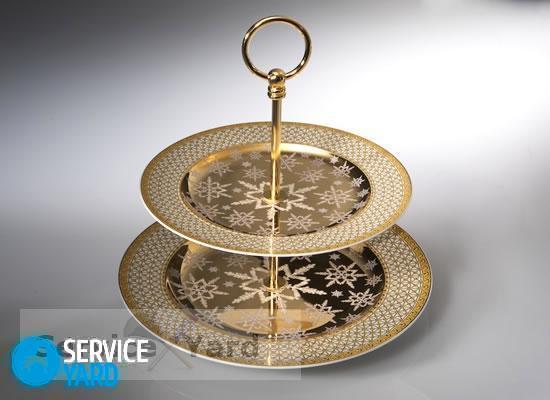Dishwashing liquid

Few people use disposable tableware at home, so the question of which dishwashing detergent is better is always relevant. The shelves in the stores are filled with such a variety of products suitable for this purpose that it is sometimes very difficult to make a choice, and folk remedies also do not lose their relevance. What is actually better? Dishwashing detergent from a popular manufacturer? Natural dishwashing detergents? And anyway, what is the safest dishwashing detergent? Our experts deal with this in this article.
to contents ↑Types of dishwashing detergents
 You can quite clearly divide all the options that exist today to 2 groups:
You can quite clearly divide all the options that exist today to 2 groups:
- natural dishwashing detergents, they are also folk;
- household chemicals.
to contents ↑Important! What to give preference to quickly, and even effectively cope with such a routine daily work, and at the same time not harm your health and your loved ones, it is easiest to solve after a detailed examination of all the advantages and disadvantages of each, as well as having carefully studied the composition of funds for washing dishes.
Household chemicals for washing dishes
Almost everyone knows that folk remedies are much safer, but they don’t go into details and prefer more convenient options - they regularly buy dishwashing detergent for any brand they like. Mainly adhere to such criteria:
- foaming;
- quality and speed of cleaning kitchen utensils;
- pleasant aroma;
- consumption and time of use of one package.
Important! Ideally, it would be necessary to add to this list such requirements as harmlessness, environmental cleanliness or the naturalness of the components in general, and as a result hypoallergenicity. Determining which dishwashing detergent is better by these criteria is not difficult. But for this you will have to spend a little of your time and study in detail the composition of detergents for dishes. Modern gels, washing concentrates, powders and liquid soap, designed specifically for cleaning plates, cutlery, glasses, pots and pans, may include:
- Alkalis (carbonates, phosphates, atria silicates) - their amount affects the rate of breakdown of fats and other types of dirt.
- Surfactants are harmful to human health and poorly washed off by water components, but some of them prevent excessive pollution of dishes after washing, creating an invisible barrier film. That is, when eating from such a plate, you taste these same surfactants with taste. According to GOST standards, the amount of such substances in the composition of dishwashing detergents should not exceed 15%, but many manufacturers ignore such requirements to visually improve the quality of the procedure, thereby causing irreparable harm to your health.
- Bactericides - affect the washing speed of complex protein compounds.
- Stabilizers - provide fast foaming.
- Dietanamine - is present in all household chemicals, without exception, and also causes liver poisoning.
- Chlorine - by definition, gives a disinfecting effect, kills harmful bacteria on dishes, but with regular inhalation of its vapor, you are guaranteed a headache, damage to the mucous membranes of the eyes, difficulty breathing.
- Fragrances are caustic chemicals that help maintain a pleasant aroma on dishes while washing.The principle of their operation is understandable - they settle on the surface and, of course, do not disappear anywhere when you pour food into a plate or eat it.
Popular dishwashing detergents
When considering shelves with products for home use, pay attention to those detergents for dishes that, according to the housewives, are really effective and at the same time contain the permissible norm of all harmful substances:
- Fairy - this brand is undoubtedly the leader in the ranking. It foams well, lasts for a long time, surfactants within 5-15%, does not cause skin allergies. Information about the number of fragrances is not provided, that is, given this point, we can only assume that everything is within the normal range. Although some varieties are not always pleasant, they have a pungent and even pungent odor, which suggests that the manufacturer still overdoes it with fragrances.
- Morning Fresh. Another dishwashing detergent, but studies show that is far from safe. The content of surfactants is from 15 to 30%. Most consumers choose it because of the unobtrusive aroma and effective cleaning, without going into details on the composition.
- AOS. This detergent for dishes at home is also in constant demand, but in principle it is not clear how it can get on shelves in stores in terms of its composition. Among the harmful components, it is worth noting not only surfactants (from 15 to 30%!), But also the salt of a complex acid, which can cause irritation of the mucous membrane, skin and respiratory organs.
- Frosch. The products of this brand can be found far from everywhere, but nevertheless, if you look for a more or less safe dishwashing detergent from the group of household modern chemicals, you can give preference to it. The composition of harmful surfactants within the permissible 15%, + less than 5% relatively safe, in minor quantities also contains dyes, lemon oil and aromatic additives.
- Pril. This composition in its composition does not attract at all: up to 30% surfactants, preservatives, complex flavors, antimicrobial and antifungal components for conservation, which can provoke persistent allergies and dermatitis. The full list of all substances by the manufacturer is not indicated in the framework of secrecy and the prevention of theft of the recipe, but even the data that there is no doubt that Pril is not suitable as a safe dishwashing detergent.
- Faberlic. Not a very popular option, but nevertheless, it is gaining more and more fans among housewives. A pleasant unobtrusive aroma, convenient packaging, concentrated consistency, which is why such a detergent for dishes lasts for a very long time, excellent foaminess and hypoallergenicity - not all the advantages of this solution. If we study the component composition more closely, we note that there are harmful impurities, but all within the permissible norm, the perfume is at least 5%, the dye is food grade, plus there are natural components in the composition that effectively cope with pollution - sodium chloride and citric acid.
Natural Dishwashing Detergents
 No matter how good the modern household chemistry is, no matter how much time it saves us, it can only be called harmless with a stretch, and even that, far from all means. It is for this reason that, in the current environment, which is already unsuitable for normal life, the environment does not harm itself even more, many return to proven folk safe means for washing dishes.
No matter how good the modern household chemistry is, no matter how much time it saves us, it can only be called harmless with a stretch, and even that, far from all means. It is for this reason that, in the current environment, which is already unsuitable for normal life, the environment does not harm itself even more, many return to proven folk safe means for washing dishes.
Important! All of them, when used correctly, are very effective, are much cheaper and do not pose any threat to your health. Therefore, the conclusion which dishwashing detergent is better is obvious.
Popular folk dishwashing detergents
- Soda and salt. Perfect for cleaning plates from grease, for washing glass goblets, so that there are no streaks on them, for removing carbon deposits from pans.
- Sand and ash - perfectly absorb fat and remove soot.
- Mustard is a good option, you can use both the powder itself and make a paste from it for washing different dishes. The only drawback is that rags and sponges acquire a characteristic brownish tint after cleaning.
- Vinegar - breaks down fat and removes the smell of fish, and after washing the glass in a vinegar solution will shine and no stains will form on the surface.
- Lemon juice or powder - well whitens and removes unpleasant odors.
- Soda ash - copes well with burnt and highly smoked dishes.
Natural Safe DIY Dishwashing Detergent
If you do not want to get the right type of powder every time, and sometimes abrasive products need to be dissolved so as not to damage some coatings, use the more convenient option - a ready-made product. Make it in advance, pour it into a suitable container and use as needed.
Recipe:
- Rub the laundry soap on a fine grater - 100g.
- Dilute it with hot water - ½ cup.
- Stir well to completely dissolve the soap.
- Add soda to the mixture - 75g or 3 tbsp.
- Drop an essential oil (any) - a couple of drops to create a characteristic aroma.
- Mix everything well.
- Dishwashing detergent is ready.
Useful Tips
If you still adhere to modern dishwashing detergents, try to minimize their harmful effects. Follow these rules:
- Carefully study the composition of dishwashing detergents before buying - give preference to a more harmless one.
- If possible, wash the dishes with gloves on.
- Rinse each item well - ideally at least 15 minutes.
- If the label indicates that it is a concentrate, be sure to dilute it before use, according to the specified proportion.
Stock footage
Now you know all the useful information about the existing methods of washing dishes. We hope that our tips have helped you sort out the current diversity and you have already decided for yourself which dishwashing detergent is better.
- How to choose a vacuum cleaner taking into account the characteristics of the house and coatings?
- What to look for when choosing a water delivery
- How to quickly create comfort at home - tips for housewives
- How to choose the perfect TV - useful tips
- What to look for when choosing blinds
- What should be running shoes?
- What useful things can you buy in a hardware store
- Iphone 11 pro max review
- Than iPhone is better than Android smartphones



